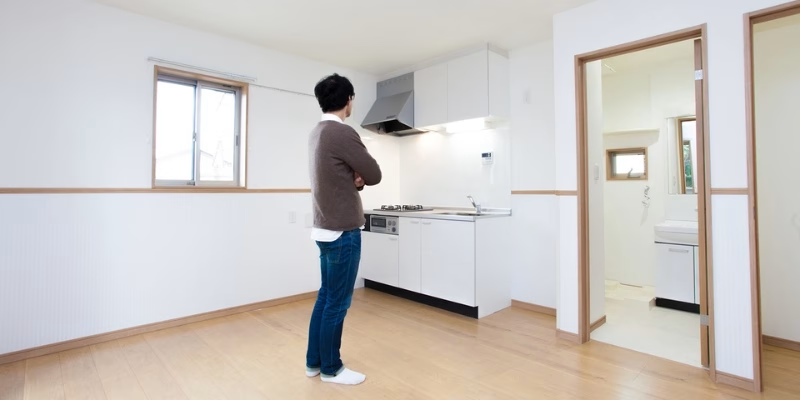The issue of foreigners rental rejection Japan isn’t just about paperwork or language barriers – it’s about understanding a unique housing culture that can feel both fascinating and frustrating. Whether you’re a student, a professional, or simply dreaming of life in Japan, knowing why these rejections happen is the first step toward overcoming them. Curious about the real reasons and how to boost your chances of approval? Dive into our full article to uncover what really goes on behind Japan’s rental doors – and how you can turn a “no” into a confident “yes.”
What It’s Really Like to Rent a Home as a Foreigner in Japan
Recent data shows that nearly four out of ten foreigners in Japan have faced housing rejection purely because of nationality. The process of renting a property in Japan whether an apartment in Tokyo or a small house in the suburbs can be unfamiliar for those used to Western rental norms. Every application goes through multiple layers of verification, and cultural misunderstandings can make things even more complicated.
To succeed, foreign residents need to understand how the Japanese real estate market works, the screening system in place, and what criteria property owners prioritize.

How Tenant Screening Works in Japan
In most rental cases, two levels of screening are required before a tenant can move in:
- Guarantor company review – assesses your credit history, income stability, and reliability.
- Landlord or property management approval – the owner makes the final decision, often influenced by personal impressions and risk perception.
If you fail either stage, the application will be denied. This multi-layered system is meant to reduce risk for landlords but can be especially tough for foreigners who lack local financial records or guarantors.

Top Reasons Rental Applications Are Rejected
While rejections can happen to anyone, foreign tenants face a much higher rejection rate than Japanese applicants. Below are the most frequent causes and how to avoid them.
Poor Credit or Payment History
Any signs of unpaid bills, debt issues, or previous defaults either in Japan or abroad can hurt your chances. Guarantor companies access databases that show your financial behavior. Even small issues from the past five years might raise red flags.
Insufficient Income
A common rule in Japan is that monthly rent should not exceed 30% of your net income, or that your annual income equals at least 36 times the rent. Applicants who don’t meet this threshold are often rejected automatically. Having a co-tenant or guarantor may sometimes compensate for a lower income level.
Incorrect or Unconfirmed Details
Providing inconsistent or unverifiable employment information will almost always result in rejection. Property managers often contact your employer directly, and if they can’t confirm your details or sense dishonesty – the application will be refused immediately.
Rental Rejection Due to Nationality
It’s unfortunate that unequal treatment persists in Japan’s rental market. A 2016 Ministry of Justice survey revealed that nearly 40% of foreigners were turned away purely for being non-Japanese, and over a quarter of properties displayed “no foreigners allowed” signs. While illegal under human rights principles, such practices persist due to weak enforcement and cultural biases.

How to Strengthen Your Chances of Rental Approval
Showcase a Reliable Financial Background
Before applying, make sure your income and savings comfortably meet the rent ratio requirement. Prepare clear proof of employment, bank statements, and tax documents to show financial reliability. Paying a few months’ rent upfront can also build confidence with landlords.
Use a Guarantor Company
Because it’s often difficult for foreigners to find personal guarantors, professional rent guarantor services have become essential. For a small fee (typically 0.5–1 month’s rent initially plus renewal fees), these companies vouch for you and cover unpaid rent if necessary. Using one can greatly improve your acceptance rate.
Learn Local Housing Etiquette
Landlords worry about cultural misunderstandings especially regarding garbage disposal, community rules, or noise management. Showing that you understand these norms (and perhaps even introducing yourself politely to neighbors after moving in) can reassure property owners that you’ll respect Japanese customs.
Partner with Real Estate Agencies That Support Foreigners
Many agencies specialize in properties open to international tenants. These agents understand visa processes, communication preferences, and how to negotiate with landlords who may hesitate to rent to foreigners. Look for listings labeled foreigner-friendly or English-support available in Tokyo, Osaka, and other major cities.
Trusted Real Estate Agencies Supporting Foreign Renters in Japan
For foreigners navigating Japan’s rental market, partnering with the right real estate company can make all the difference. Several reputable agencies specialize in helping non-Japanese residents find homes smoothly – from searching and viewing to signing contracts and moving in.
Among the most well-known names are SUUMO, HOME’S, E-Housing, and Arealty.
- SUUMO is Japan’s largest real estate platform, offering extensive property listings across the country, with helpful English-language resources and detailed guides for foreign tenants.
- HOME’S (homes.co.jp) provides a massive database for both renting and buying, allowing users to compare prices and neighborhoods easily.
- E-Housing based in Tokyo, is known for its “foreigner-friendly” listings and one-on-one support in English, assisting tenants with the entire rental process.
- Arealty stands out as a comprehensive real estate company dedicated to international clients. From short-term rentals to long-term leases and pet-friendly apartments, Arealty offers full A-to-Z assistance including property search, document translation, negotiation, and after-move support. With its multilingual service and customer-first approach, Arealty has become one of the most trusted partners for foreigners seeking a stress-free rental experience in Japan.
By working with these agencies, foreigners in Japan can avoid many common pitfalls such as miscommunication, document confusion, or unfair rejection and secure suitable housing with confidence.

What to Do If You’re Rejected
Even with preparation, rejections can still occur. If that happens:
- Ask for informal feedback: While not required, agents sometimes share insights on why your application failed – such as insufficient income or landlord bias.
- Adjust your budget or area: Try cheaper units or less competitive neighborhoods where landlords are more flexible.
- Provide extra assurances: Offer higher deposits, proof of past rent payments, or letters from employers or previous landlords to demonstrate reliability.
Persistence matters many foreigners secure housing after a few tries once they understand how the system works.
Outlook and Conclusion
Japan’s housing market is slowly evolving. As the country encourages foreign workers and students to offset its aging population, awareness of housing discrimination is growing. Municipalities and real estate associations are promoting fairer rental practices and encouraging landlords to accept qualified foreign tenants.
Still, foreign residents must navigate a system built primarily for Japanese tenants – which means preparation, persistence, and the right partnerships are essential. By understanding screening criteria, using guarantor services, and targeting foreigner-friendly listings, you can dramatically increase your chance of success.
Looking for budget-friendly places to live near Tokyo? Explore Arealty’s updated listings for no-deposit apartments across Saitama, Kanagawa, and Tokyo:





Leave a Reply